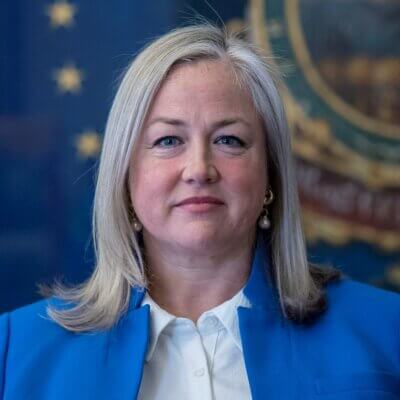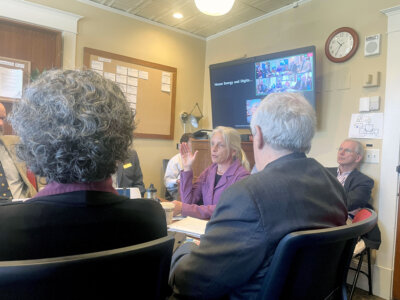Education and accountability on the legislative docket
One day, maybe I’ll update you all on something that’s not taxes or education spending, but for now, it’s still the hottest topic in state government. Since we don’t know too much yet, I’ll give you a brief overview of the new education plan and my thoughts, and then I’ll fill you in on a government accountability bill I’ve been working on.
The governor is driving the school bus for education and property tax reform right now. Secretary of Education Zoie Saunders unveiled their big plan in front of the House and Senate a couple weeks ago, which you can watch here.
The plan is called “Stronger Schools, Stronger Students.”
When the plan was initially presented, there weren’t many details. Like none, really. Since then, we’ve gotten some, but it’s still not clear how it’s going to play out for students in Charlotte, Hinesburg and at Champlain Valley Union and the Champlain Valley School District. I’m all for anything that reduces our property taxes and improves education outcomes and opportunities for the young folks. But I’m still not quite sure how those numbers are going to work out well, especially for us.
One of the most significant changes transitions the state from more than 90 school districts into five. The largest one would be ours, the Champlain Valley Region, which would extend from southern Chittenden County all the way up to the Canadian border. There would be a little more than 34,000 students in our district; the next largest would have just over 14,000.
I’m not sure why there’s such a huge difference. I suspect it’s an effort to avoid having a school district that’s made up solely of Chittenden County students, although the disproportionate numbers could present some logistical issues and end up costing us more than the rest of the state. I’m hopeful that there will be another attempt at configuring the school districts in a fair and impartial way so that they’re all more equal in size and no one area is disadvantaged.
My main concern with the whole plan is that the administration estimates it will save about $184 million a year. That’s not nothing; it’s around 9 percent of our yearly state expenditure on education. What we don’t know, though, is if that’s going to extend to that amount of savings in our property taxes. We don’t even know if that’s even a real number. We have no way of predicting how much health insurance and other costs will rise; I’m not sure if it’s factored in all the money that we need to fund school construction and PCB mitigation, especially if schools are consolidating and will need infrastructure work. We just don’t know.
The governor and the secretary of education have indicated that this plan will take two years to implement. This seems fast. In the meantime, I don’t anticipate much further property tax relief, and to be honest, I don’t know how we can get legislation through in the next four months that will give this plan the careful consideration and time it needs. I’m hopeful that a compromise will be reached, but it’s hard to imagine that we can completely revamp the whole kit and kaboodle in such a short period of time. I worry we’re going to make a bigger mess in the interest of expediency.
Before I move on, I want to acknowledge the hard work, dedication and willingness to pivot and adapt that our school board members have shown. It’s a volunteer job that gets little reward, takes up lots of time and has been particularly difficult in the last five years. I’m so appreciative.
I don’t introduce a lot of bills. Some legislators are prolific in that way, but I’m a less-is-more kind of gal, so I only introduced one this session, but it’s a hefty one. I’m the lead sponsor along with representatives Lucy Boyden from Cambridge and Rey Garofano from Essex. It’s a government accountability bill, H67, and it takes a systematic approach to looking at government programs to make sure they’re doing two things: achieving the goals they set out to achieve and not costing more money than they should. There are systems in place to do some of this work, but oftentimes we’ll create a program or commission or working group or study committee, fund it through the general fund budget, and then not ever come back to take a good look at whether or not it’s accomplishing what it’s supposed to.
Thank you for your feedback after my last column; it’s so valuable to me and always welcome at 917-887-8231 or email.
Related Stories
Popular Stories
If you enjoy The Charlotte News, please consider making a donation. Your gift will help us produce more stories like this. The majority of our budget comes from charitable contributions. Your gift helps sustain The Charlotte News, keeping it a free service for everyone in town. Thank you.
Andrew Zehner, Board Chair





